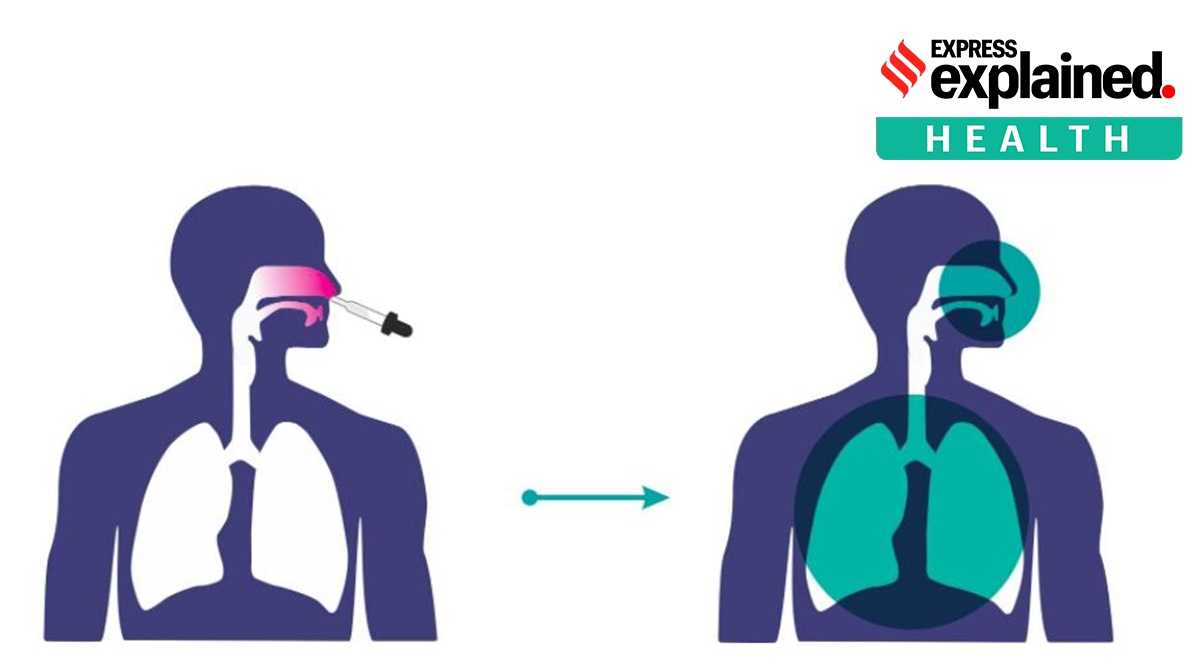Intranasal vaccines cut down on the need for syringes, needles and other components like alcohol swabs, as they are not injected.
An expert body looking into Bharat Biotech’s application for testing its proposed single-dose intranasal Covid-19 vaccine, BBV154, has asked it to revise its protocol to conduct clinical trials. The Indian Express takes a look at this type of vaccine, why it may be important in a pandemic and the expert committee’s recommendations:
What is an intranasal vaccine?
Vaccines are most commonly administered as injectable shots into the muscles (intramuscular) or the tissue just between the skin and the muscles (subcutaneous). However, with intranasal vaccines, the solution is squirted or sprayed into the nostrils and inhaled instead of injecting it. It isn’t the most common route of administering a vaccine and, so far, only some flu shots are given this way.
What are the benefits to an intranasal vaccine during a pandemic?
Such vaccines not only aim to overcome barriers to delivery and administration that come with producing and distributing injectable vaccines, they also may be able to tap an additional set of immune cells found in the tissues lining the nose, mouth and lungs.
Intranasal vaccines cut down on the need for syringes, needles and other components like alcohol swabs, as they are not injected. According to Bharat Biotech, BBV154 is non-invasive, eliminates needle-associated injuries and infections and is easy to administer, as it also does not require trained healthcare workers. It is also a single-dose, making it easier for those receiving the vaccine as well–they would not have to schedule revisits for booster shots the way they would have to with existing, injectable Covid-19 vaccines.
It also is easier to scale up manufacturing of such a vaccine, according to the company, which had earlier said it was aiming to make up to a billion doses of this vaccine.
What are the potential setbacks?
Past attempts to develop intranasal vaccines, including for measles flu, have not been very successful. These vaccines have mostly been made using live, weakened viruses, but have never cleared clinical trials. Only a live attenuated influenza flu vaccine has been licenced through this route of delivery. Bharat Biotech’s BBV154 is the first publicised attempt at getting an intranasal Covid-19 vaccine.
However, this vaccine uses the same novel route of developing an immune response as the Serum Institute of India’s Covishield–it is a chimpanzee adenovirus vector vaccine. While the company says that animal studies have shown promise, it remains to be seen how safe and effective this vaccine may actually be when tested on humans.
Some experts have also said earlier that, because such a vaccine is being administered through the nose, the amount given in one shot has to be smaller than the quantity that can be delivered when injected.
? JOIN NOW ?: The Express Explained Telegram Channel
How many people will be tested in early-stage trials? What are the expert body’s recommendations?
On January 18, a Subject Expert Committee (SEC) under the Indian drug regulator looked at Bharat Biotech’s animal testing data as well as its protocol to conduct phase 1/2 clinical trials of BBV154.
After detailed deliberations, the SEC recommended that the company would have to conduct phase 1 clinical trials using 75 volunteers and submit safety and immunogenicity data for the committee’s consideration before it proceeds to the second phase of the trial. The firm would have to revise its protocol accordingly.
Source: Read Full Article


